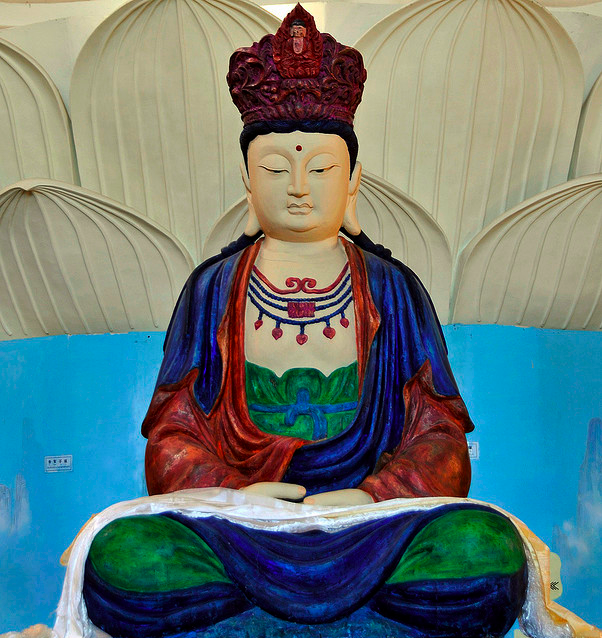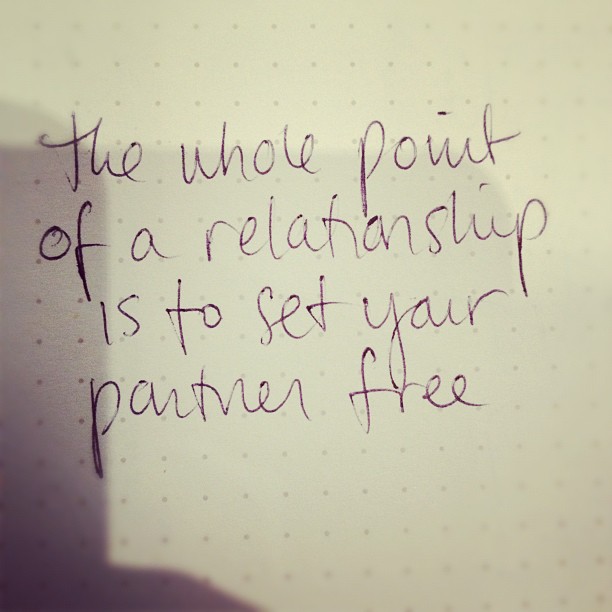“You only lose what you cling to.”
~ Gautama Buddha
Stop clinging and there—you’ll have your solution. Simple.
But what about relationships?
The light-dark (yin-yang) aspects can hover over one like a shadow. Emotional turbulence can exhibit itself in frustration, anger and worse, we stop feeling love, we stop feeling freedom, we stop feeling happiness and we lose ourselves in opposing another.
The archetype plays out like so:
We fall in love. We fight. We roar. We want. We need. We never get all our needs met. We strive for more. We lose. We fall. We break up. We cry. We yearn. We get back together again. We love outrageously.
We will do anything—we’re so afraid of losing love and connection.
Relationships are always an adventure—we can’t outsmart them, avoid the pain or avoid doing the work.
Whether requited or unrequited, what happens when there is doubt or hesitation on either side? Or the fire starts to dim and flicker, or worse, goes permanently lukewarm? Or if one’s chosen bed mate is spending too much time at work, at the health club or with his secretary?
“What hurts you,
blesses you.No matter how fast you run,
your shadow keeps up.Darkness
is your candle.Your boundaries
are your quest.You must have
shadow and light source
both.”~ Rumi
Don’t fight the shadow. Don’t fight the darkness. Don’t fight the unwanted feelings. Darkness can be a friend. Without darkness, there would be no light.
Relationships merely hold up a mirror to what is real and waiting to be addressed, felt, acknowledged. As needy and complex beings, relationships are the field in which we express our neuroses (needs and complexities).
When it feels like it sucks—or it does just suck!—is there a wellspring we can tap into for answers? Is it possible to tap into the infinite and unknowable field of oneness, love and compassion that pervades existence and just stays there?
Can we find the answers we need in Bodhisattva?

Bodhisattva practices in Tibetan Buddhism involve selfless love for others without any self-interest.
In relationship terms, this would involve completely surrendering to loving one another unconditionally. The active part would involve a willingness to know another without judgment or attachment—yet at the same time investing one’s full attention in caring for each other wholeheartedly. One would always remain faithful to the unselfish component, putting another’s needs first—always!
Sound simple enough? It’s easy too!
For those narcissistically-inclined among us (I daresay, a vociferous minority), how is it possible to put another first unless it’s one’s own child? How is it possible to give without wanting (or expecting) reward? How is it possible to love unconditionally?
This would entail serving another’s needs as more important than one’s own; refusing to cling to another person under one’s own volition, pure acceptance, pure lovingkindness.
“No one saves us but ourselves. No one can and no one may. We ourselves must walk the path.”
~ Gautama Buddha, Sayings Of Buddha
One can be of pure heart, pure mind and pure body whilst knowing that life is ephemeral, and maintain a detachment to the maya of another person, as one retains a detachment to the maya of oneself. But surely, sometimes we just want things, sometimes we still just expect things from our partner?
Sometimes, we just need things.
Sometimes, we think and feel things (selfishly focused on the self). Also, we get accustomed to certain behaviors, we get attached to things, like for instance, when your partner brings you coffee or tea in the morning. If they were to suddenly stop, wouldn’t you feel “deprived?” Wouldn’t this lead to suffering?
I believe the answer lies in setting one’s mind to zero, letting go of everything. Reaching a zero point is like starting all over from nothing, much like resetting your computer: no attachments, no addictions, no sankaras.
If your hard-drive got completely cleaned, you could start your computer like starting it for the first time—point zero. Clinging to nothing. Hence, discovering boundlessness, freedom and happiness.
“If, in our heart, we still cling to anything – anger, anxiety, or possessions – we cannot be free.”
~ Thích Nhất Hạnh
When we think something, it gets loaded into the software of the mind, and hardware of the brain. It will stay there until deleted. Negative thoughts can be replaced by positive thoughts with attention, intention, awareness and meditation. If one intends it, it will occur effortlessly over time.
Reaching zero point in a relationship means starting again from ground zero, forgetting everything, and hence being allowed to be completely present for one another—coming from love.
“The secret of Buddhism is to remove all ideas, all concepts, in order for the truth to have a chance to penetrate, to reveal itself.”
~ Thích Nhất Hạnh
Then you can forge ahead again, walking the path of dhamma together, knowing that you may not always face the same direction, yet remaining compassionate whatever your personal mood or leaning.
Metta is an unconditional altruistic love that cares for another without attachment. It is far removed from the experience of love as sexual desire. Yet, many who follow this practice will verify that however unselfish one’s practice, the more one loves others, the more one touches Bodhisattva and feels complete bliss. If I cause love, then I will experience love.
There is a spontaneous and natural fountain called love.
It springs from within, yet arguably it comes from Union with the Divine. Whatever its source, it is boundless, intelligent, infinite, omniscient and equanimous. Love wishes that all experience love; compassion wishes that all experience compassion. Love and compassion wish that all beings cease suffering and find joy.
There are many levels and personalities within the field of love. Love is something that cannot be defined or reduced in the definition itself. Definitions are in themselves limitations, the type of narrowed “thought compartments” that go against the flow of love. When we focus on left-brain hypotheses, we can easily get stuck in the cerebellum and never move beyond it! This is not the way of love.
Love is being and doing without effort—something that is beyond quantification, requiring experimentation, exploration and experience.
In relationship terms, a true Buddhist must refuse to cling to another person, detached enough to know that all of life is ephemeral. A perfect relationship works when love is friendship without neediness, service without obligation, giving without the expectation to receive.
Is it possible to ever reach perfection? Only if we reach enlightenment, and the Buddha didn’t reach enlightenment within a relationship, so perfection does not exist.
Rather focus on being real, focus on love and contentment that is authentic; focus on contentment; focus on giving; focus on resolving your own shadow, your own neediness, and not blaming your partner for your feelings, for your unmet needs.
Take responsibility for everything you have in your relationship—and that will be the start.
The whole purpose of a relationship is Divine, to set ourselves free, and in doing so, to set our partner free.

Love elephant and want to go steady?
Sign up for our (curated) daily and weekly newsletters!
Editor: Catherine Monkman
Images: Wikimedia Commons, elephant journal archives











Read 0 comments and reply